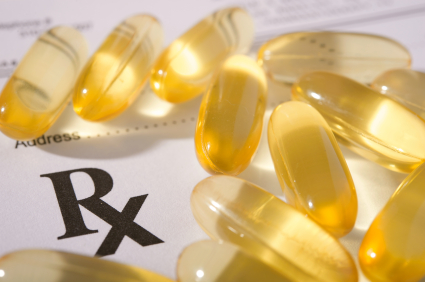Vitamin D deficiency is common in athletes. Correcting the deficiency by taking a Vitamin D supplement can produce significant musculoskeletal sports health benefits, a new study1 reports.
Vitamin D facts
- Vitamin D is a necessary nutrient that must be obtained from the diet when sufficient quantities cannot be synthesized.
- The vitamin is primarily produced following skin exposure to ultraviolet B radiation, but such production can be absent or dramatically reduced due to skin coloration (the melanin in the skin of Africans or African Americans block nearly 99% of vitamin D production) and sunblock use (similar decrease after using SPF 15 sunblock).
- Indoor activities, pollution, time of day, increasing age, latitude, and seasonal changes all affect vitamin D production through the skin.
- Vitamin D3 is more potent than Vitamin D2 and should be used for supplementation.

- The average American diet supplies very little of the 4000 to 5000 IU of vitamin D3 used per day, even in diets with significant amounts of wild-caught fatty fish.
- The accepted definition of vitamin D sufficiency is 25-hydroxyvitamin D3 (25(OH)D) above 30 ng.ml.
- Based on this definition, vitamin D deficiency affects all age groups and demographics:
- 50-70% of children and adolescents
- 75% of whites and 90% of African Americans and Latinos
- Deficiency rates have doubled from 1994 to 2004
Effects sports health & athletic performance
Vitamin D affects:
- muscle protein synthesis
- muscle strength
- muscle size
- reaction time
- balance
- coordination
- endurance
- inflammation; and
- immunity.
Vitamin D deficiency produces:
- muscle fiber atrophy
- slow peak muscle contraction
- prolonged time to muscle relaxation, and
- increased risk of chronic musculoskeletal pain.
Type II, fast-twitch muscles fibers, extremely important in many of the burst activities necessary for peak athletic performance and fall avoidance, are particularly sensitive to the effects of Vitamin D deficiency.
Vitamin deficiency common in athletes
There is no known threshold for optimal sports health benefits of vitamin D, but studies show many elite athletes are vitamin D deficient, with incidences of vitamin D deficiency in:
- basketball players (up to 94%)
- gymnasts (83%)
- football players (81%)
Benefits of increasing vitamin D
Musculoskelatal:
Increasing vitamin D levels provides multiple musculoskeletal benefits, including increased:
- muscle protein synthesis
- ATP concentration
- strength
- jump height
- jump velocity
- jump power
- exercise capacity, and
- physical performance.
Other benefits
Vitamin D
- plays an important role in bone health and fracture prevention
- has immunomodulatory effects, with increased vitamin D levels reducing inflammation, so that, in theory, if athletes increased their levels of vitamin D by supplementation, inflammation would be reduced, and training could be resumed more quickly.
- is correlated with reductions in the reported incidence of colds and flu (Vitamin D status in the spring was correlated with frequency of illness in Division I college athletes. Athletes, especially those injured (stress fractures), musculoskeletal pain, or those with frequent infections, should have vitamin D levels measured and deficiencies corrected.
Recommendations for athletes
There are no recommended screening guidelines for vitamin D deficiency, which is diagnosed with a simple blood test.
If an athlete is vitamin D deficient, supplementation protocols require 50,000 IU of vitamin D3 per week for 8 weeks. A steady state level of 25(OH)D is achieved after about 90 days of supplementation. Once supplementation is completed, retesting is recommended at 3 months. If levels remain too low, repeating the supplementation protocol for another 8 weeks, and retesting is recommended.
1. Shuler FD, Wingate M, Moore GH, Giangarra G. Sports Health Benefits of Vitamin D. Sports Health: A Multidisciplinary Approach. 2012;20(10). DOI:1177/1941738112461621 (published online October 2, 2012)(accessed October 8, 2012).
Posted October 9, 2012









